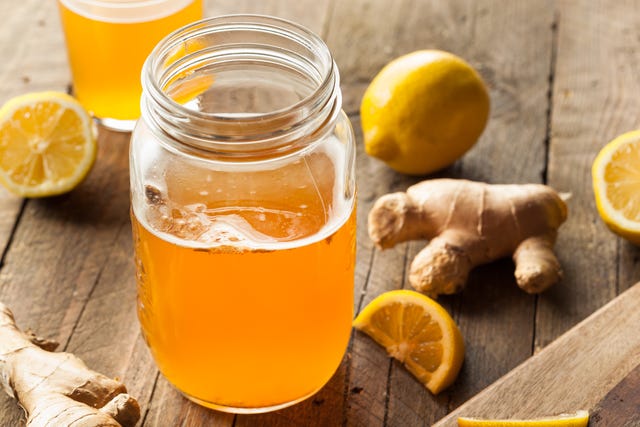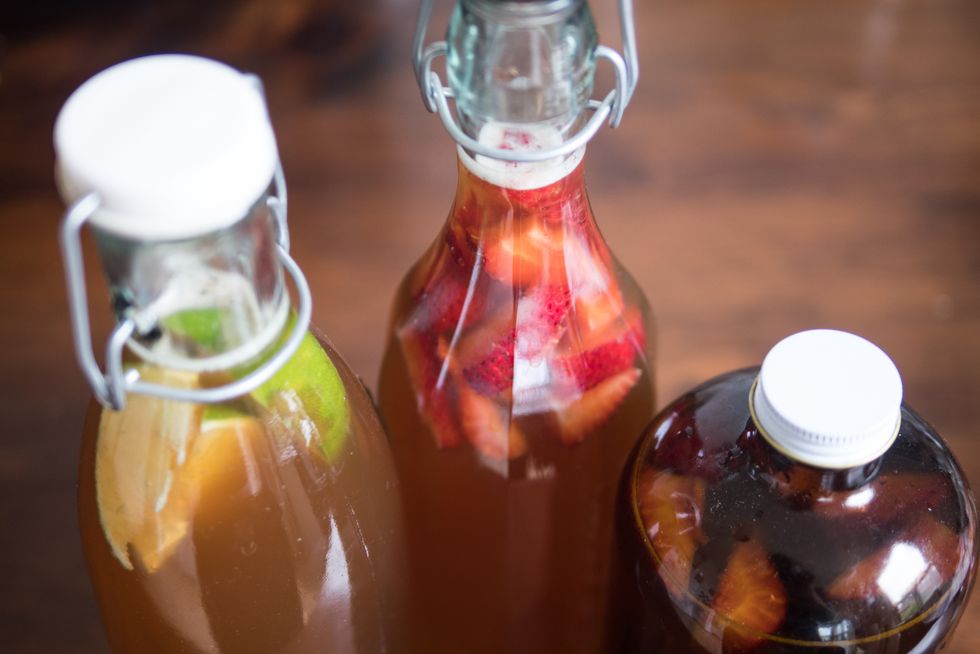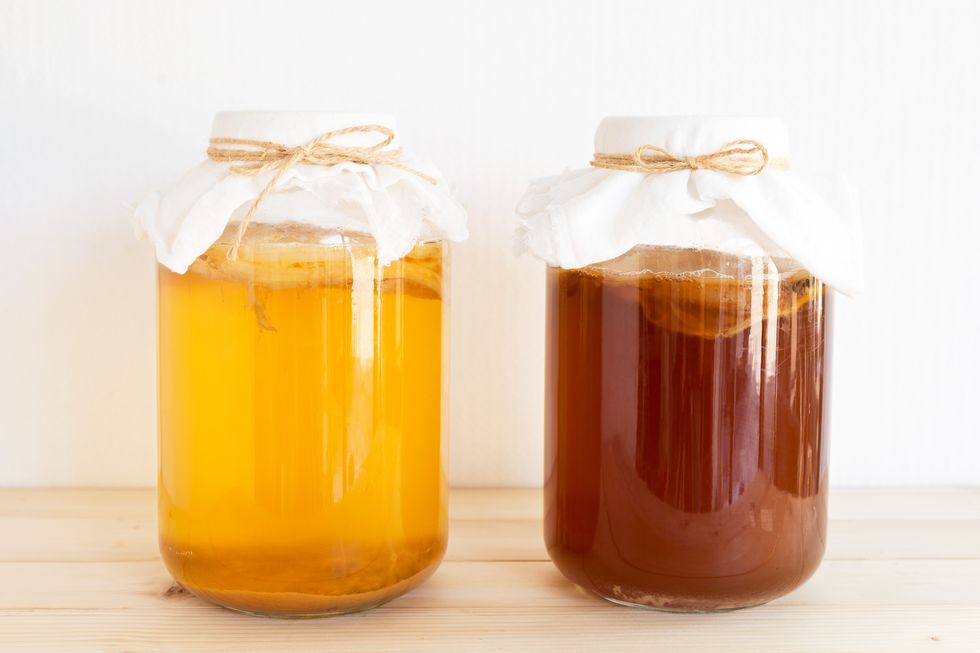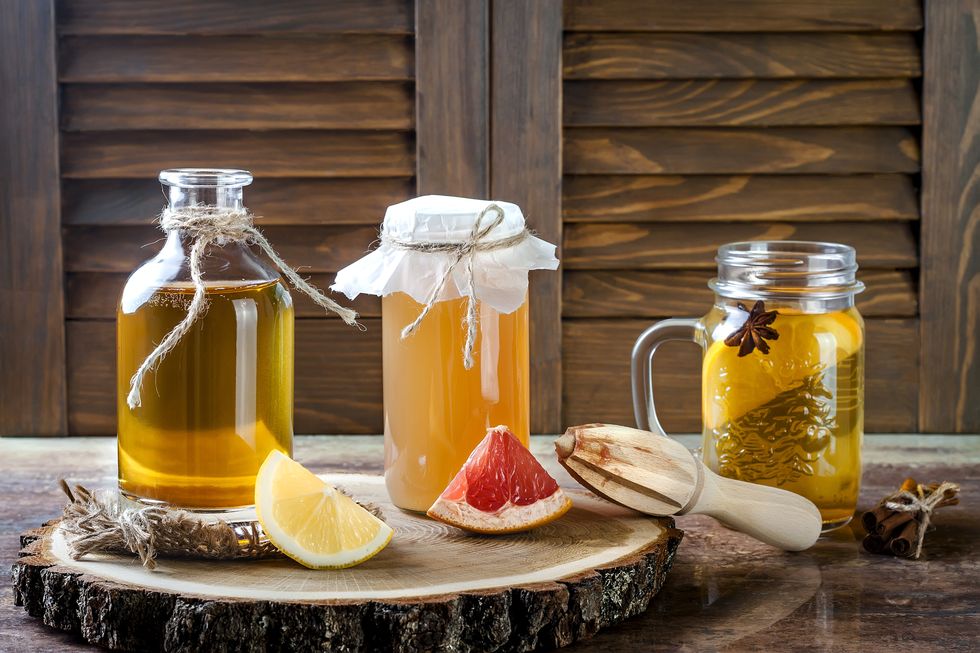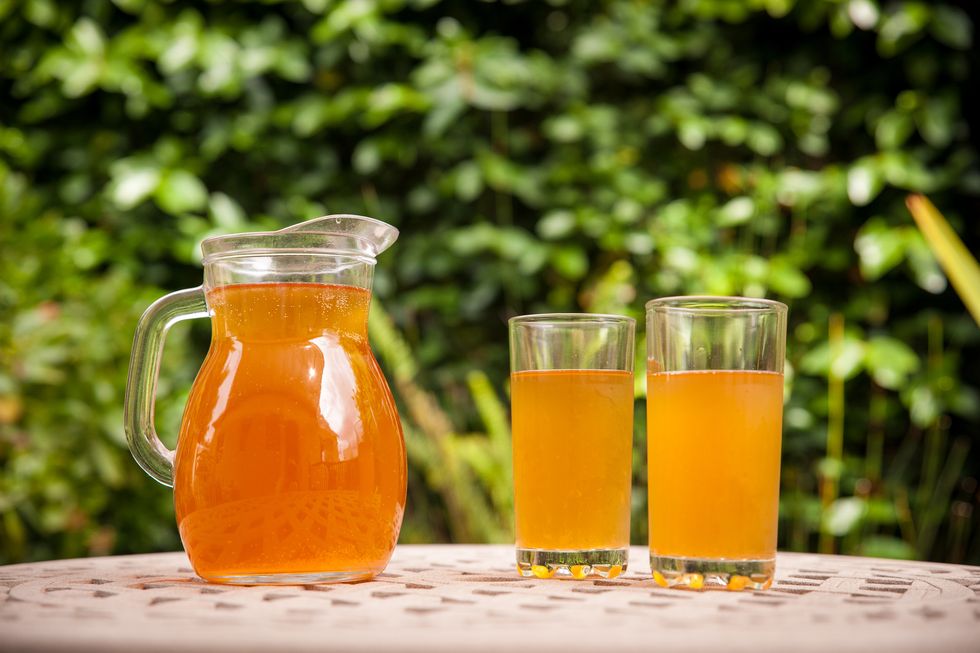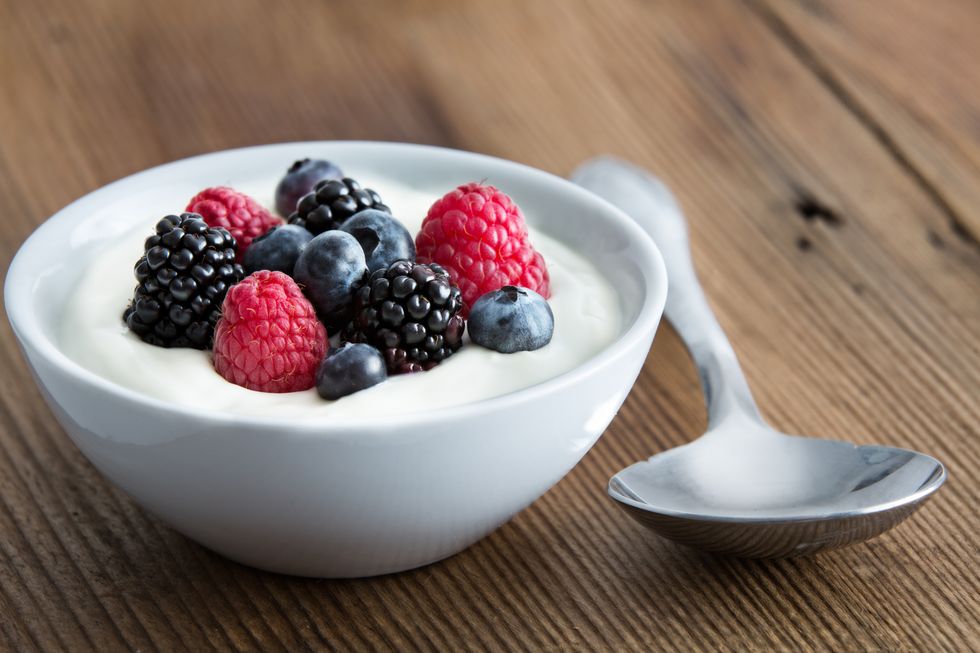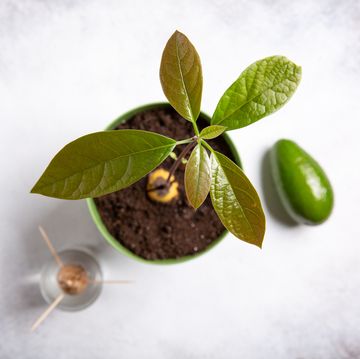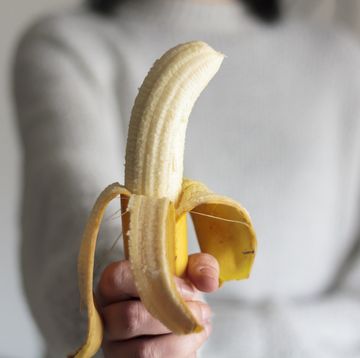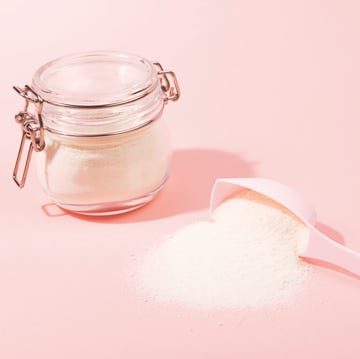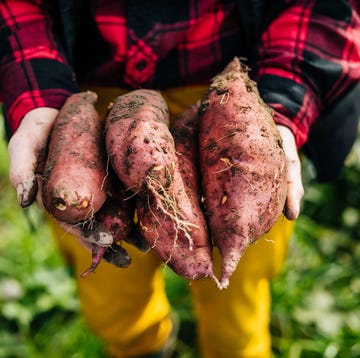Do a quick search of kombucha online and you’ll find that the fizzy drink (produced by fermented tea, sugar, fungi, and bacteria) supposedly supplies sky-high energy, quells pain, fends off certain cancers, detoxes your body, helps you shed weight, and turns your immune system into a fortress. Guzzlers of the health beverage preach these promises, too.
But is our beloved kombucha really a health elixir in a bottle? Here are five things to keep in mind before you take a swig.
1. Kombucha isn't a miracle worker.
"I would be wary of calling kombucha a remedy or a magic food," says Maggie Neola, RD, a dietitian at the Physicians Committee for Responsible Medicine. After all, glorifying one food over another (kale is king!) isn’t the way nutrition works. A healthy diet is all about variety.
2. It's chock-full of probiotics.
That said, Neola notes there are certainly benefits to the drink. As with any tea, you’ll sip a slew of healthy antioxidants and polyphenols, she says. "But because it’s fermented, you see more of that probiotic push in kombucha." And that’s where most of the drink’s health benefits lie: probiotics, a.k.a. good gut bacteria.
"The gut microbiome is often called the forgotten organ — it’s really important to foster that health," Neola says. After all, a healthy gut microbiome can help fend off issues like diarrhea and IBS and help your whole body function at its best.
Fermented foods like kombucha may also improve the health of your intestinal cells, boost your immune function, and cut your risk of allergy and chronic disease, says Neola. There's a catch, though: These benefits aren’t unique to kombucha itself, but rather probiotic-rich or fermented foods, she says.
3. There's a pasteurization conundrum.
Kombucha’s probiotics can also come with a downside. That’s because some kinds of the drink are unpasteurized — and thus, you run the risk of a seriously upset stomach, says Keri Gans, RD, author of The Small Change Diet. Or worse: "Without pasteurization, you run the risk of harmful microorganisms taking over and causing serious problems, including food poisoning," says Ryan Andrews, RD, a fitness and nutrition coach with Precision Nutrition.
But here’s the thing — in order to reap kombucha’s probiotics benefits, the drink likely needs to be unpasteurized. "Pasteurization kills off both harmful and helpful bacteria, so any potential beneficial probiotics would be gone as well," Andrews explains.
4. There's not much research on kombucha's effects.
Past packing a probiotic punch, just how much (and how) kombucha can keep you well is a bit murky. While some studies — like one from 2014 in The Journal of Medicinal Food — have suggested kombucha tea can protect against toxic molecules called free radicals and promote immunity, most of the (incredibly limited) research on the topic is done with animals. And many of the purported health benefits stem from proponents of the beverage, not science itself.
5. You can get probiotics elsewhere, too.
The bottom line: Probiotics are a key part of a healthy diet, says Neola. And if you want to get them from kombucha, that’s fine. But if you’re going to drink the raw (unpasteurized) version, make sure to buy your kombucha from a reputable company, says Gans.
She also suggests pregnant woman and kids steer clear from sipping beverage. There’s a risk of bacteria and kombucha can have trace amounts of alcohol, thanks to the fermentation process. Ready to try it? Here are some brands we love:
Or, try brewing it yourself with a kombucha starter kit like this one. Here's how.
Remember, too: "Not all kombuchas are created equal," says Neola. "Some are loaded with added sugars." So make sure to read your label — and the serving size amount!
Not into the drink? Many other foods and drinks are loaded with probiotics and antioxidants, will hydrate you, fend off disease, and keep your immune system strong. Andrews suggests trying these:
- For probiotics: sauerkraut, kimchi, kefir, and yogurt
- For hydration: water
- For tea-related health benefits: green tea
- For improved immunity, skin, nails, and hair: a minimally processed, plant-based, nutrient-dense diet
"Filling up on veggies, fruit, 100% whole grains, nuts, seeds, and pulses can help you boost immunity and provide some important prebiotic fiber that helps your body’s own probiotics to thrive," adds Jaclyn London, MS, RD, CDN, Nutrition Director at the Good Housekeeping Institute. "Your best bet is to add more of those foods wherever you can since one food or drink in isolation isn't a cure-all. Bottom line: Choose kombucha for flavor, not just its health benefits."

Cassie Shortsleeve is a skilled freelance journalist with more than a decade of experience reporting for some of the nation's largest print and digital publications, including Women's Health, Parents, What to Expect, The Washington Post, and others. She is also the founder of the digital motherhood support platform Dear Sunday Motherhood and a co-founder of the newsletter Two Truths Motherhood and the maternal rights non-profit Chamber of Mothers. She is a mom to three daughters and lives in the Boston suburbs.
